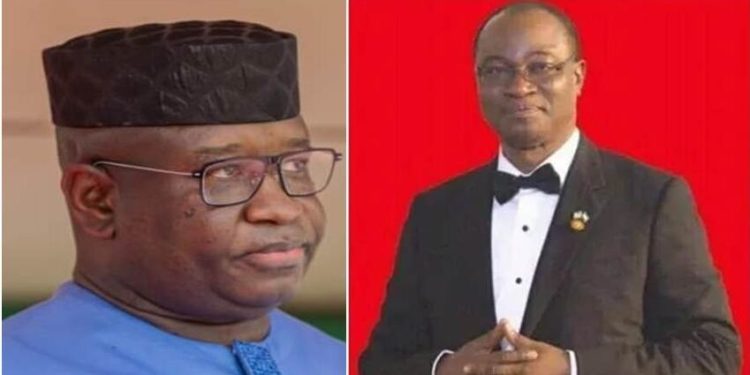By Cyllo Wise
The discontent against President Julius Maada Bio’s government by opposition parties in Sierra Leone is rooted in several key issues that have fueled political tensions and unrest. Since coming to power in 2018, Bio’s administration has faced increasing criticism from various opposition groups, particularly the All People’s Congress (APC), which has often accused the government of undemocratic practices, economic mismanagement, and political repression.
One of the main points of contention has been the conduct of elections under Bio’s leadership. The opposition has frequently accused the Sierra Leone People’s Party (SLPP) of manipulating electoral processes to maintain power. This discontent reached a peak during the 2023 general elections, where the APC and other opposition parties claimed that the election was marred by irregularities, including voter suppression and tampering with results. These allegations have eroded trust in the electoral commission and further polarized the political landscape.
The opposition also points to the economic challenges facing the country as a significant reason for their discontent. Sierra Leone has been grappling with high inflation, unemployment, and a struggling currency under Bio’s administration. The government’s inability to effectively address these issues has led to growing frustration among opposition leaders, who argue that the SLPP’s policies have failed to improve the living standards of ordinary Sierra Leoneans. They often highlight the disparity between the government’s promises and the actual outcomes, accusing the administration of incompetence and corruption.
Another critical area of opposition discontent is the perceived erosion of civil liberties under President Bio. The government has been accused of cracking down on dissent, with reports of arbitrary arrests, intimidation of political opponents, and restrictions on freedom of speech and assembly. The opposition has used these allegations to argue that Bio is leading the country towards authoritarianism, undermining the democratic principles that Sierra Leone has been striving to uphold since the end of its civil war.
The issue of tribalism and regionalism has also been a flashpoint in the opposition’s criticism of the Bio administration. The APC and other groups have accused the SLPP of favoring certain ethnic groups and regions in government appointments and resource allocation. This perceived favoritism has exacerbated ethnic tensions and fueled opposition claims that Bio’s government is divisive and unrepresentative of the entire nation.
While President Bio campaigned on a platform of tackling corruption, the opposition argues that his government has selectively enforced anti-corruption measures, targeting opposition figures while ignoring or shielding SLPP members involved in corrupt practices. This selective approach has further inflamed opposition discontent, as they see it as an attempt to weaken political rivals rather than a genuine effort to combat corruption across the boar
The judiciary’s role in political matters has also come under scrutiny, with opposition parties accusing the courts of being biased in favor of the government. High-profile cases involving opposition members have often ended in rulings that are seen as politically motivated, further deepening the mistrust between the opposition and the ruling party.
The opposition discontent against President Bio’s government is multi-faceted, driven by concerns over electoral integrity, economic management, human rights, and ethnic divisions. As Sierra Leone moves forward, these issues will continue to shape the political landscape, with the potential for increased tension if the underlying grievances are not addressed. The ability of the government to engage in constructive dialogue with opposition forces and implement reforms that promote inclusivity and transparency will be crucial in determining the future stability of the country.
In conclusion, the opposition’s discontent with President Julius Maada Bio’s government reflects deep-seated concerns about the direction in which Sierra Leone is heading. The allegations of electoral fraud, economic mismanagement, human rights abuses, and the rise of tribalism under the current administration have not only heightened political tensions but have also casted a shadow over the nation’s democratic processes. Moving forward, the onus is on the Bio administration to address these grievances through meaningful reforms and open dialogue. Only by fostering a more inclusive and transparent governance structure can Sierra Leone hope to bridge the growing divide between the ruling party and the opposition, thereby ensuring long-term stability and prosperity for its people.













